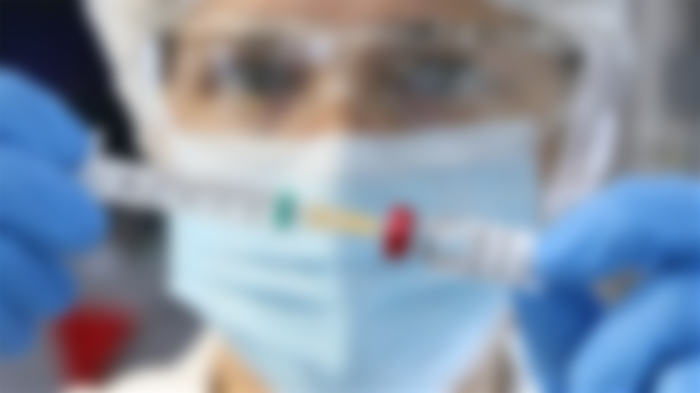
Appeared a few weeks ago, the British and South African variants of the SARS-CoV-2 coronavirus worry world health authorities because of their greater contagiousness. One point of concern was in particular the question of the effectiveness of vaccines , the first doses of which have started to be administered in large numbers in several countries. But recently, researchers showed that Pfizer / BioNTech's vaccine elicited an effective T-cell response against both variants from the first dose, and a strong antibody response after the second dose.
Apparues il y a quelques semaines, les variantes britannique et sud-africaine du coronavirus SARS-CoV-2 inquiètent les autorités sanitaires mondiales du fait de leur plus grande contagiosité. Un point d’inquiétude était notamment la question de l’efficacité des vaccins, dont les premières doses ont commencé à être administrées massivement dans plusieurs pays. Mais récemment, des chercheurs ont montré que le vaccin de Pfizer/BioNTech provoquait une réponse efficace des lymphocytes T contre les deux variantes dès la première dose, et une forte réponse des anticorps après la seconde dose.
Les personnes qui ont reçu deux doses du vaccin Pfizer ont présenté de fortes réponses des lymphocytes T contre les variantes britannique et sud-africaine du coronavirus, ce qui suggère que le vaccin continuera à protéger contre les formes graves dans les mois à venir. Dans la première étude visant à tester les réponses immunitaires contre les variantes circulant dans les populations, les chercheurs ont constaté que, bien que les réponses des anticorps contre les nouvelles variantes aient été réduites, elles peuvent encore être suffisamment élevées pour protéger la plupart des personnes contre l’infection, après qu’une deuxième dose de vaccin a été administrée.
Although previous studies have suggested that the antibodies of people who received the Pfizer / BioNTech vaccine could recognize and neutralize viruses carrying some of the individual mutations found in the South African and British variants - at slightly lower levels compared to the variants. previous studies - they were tested on modified viruses rather than those isolated from real patients.
Ces études n’ont pas non plus examiné les cellules T, qui annihilent les cellules infectées par le virus et favorisent la production d’anticorps. Les deux réponses immunitaires aident à fournir une protection durable après la vaccination, mais les réponses impliquant des anticorps sont plus faciles à mesurer.
A strong T lymphocyte response from the first dose
William James, professor of virology at the University of Oxford, and his colleagues, took blood samples from people who had recovered from COVID-19 and caregivers who had received one or two doses of the Pfizer vaccine / BioNTech. They also obtained isolates of the B117 and B1.351 virus variants first identified in Kent and South Africa, and an older variant similar to those circulating a year ago. The individuals' antibodies and T cells were then tested against these viruses to see their performance.

L’étude, qui n’a pas encore été examinée par les pairs, a révélé que les anticorps humains étaient modérément efficaces contre le virus original après leur première dose de vaccin, moins efficaces contre le variant du Kent et étaient incapables de neutraliser le variant sud-africain. Cependant, ils ont eu de fortes réponses des lymphocytes T contre toutes les variantes connues après la première dose.
“ It doesn't necessarily protect you against infection, but it's very likely that this first dose will make your immune system respond much more easily the next time. We think this is the reason why this second dose produces such a good, very strong antibody response, because the T cells are already there, ready to react, ”explains James.
Results showing the real importance of vaccination
The finding that people who have recovered from COVID and those who have received at least one dose of the vaccine have T cells capable of responding to the new variants is encouraging, as it suggests that T cells recognize different regions of the protein. peak. This could imply that they will be more resistant to future variants. The antibody responses of the patients were also enhanced by the second dose.
In over 90% of cases, the antibodies people generate after the second dose are at a level that neutralizes the virus and that one would expect for real protection against infection. Rather, we are confident that they will be protected from infection by the South African strain and the Kent strain, as well as the original strain of the virus. This virus hasn't finished evolving, but I think as long as the vaccines are rolled out and people get those second doses, we'll be in a much better position by the summer than we are now ” .
Professor Paul Morgan, Director of the Systems Immunity Research Institute, said, “ I supported the pragmatic decision to delay second doses so that more people get vaccinated as quickly as possible, and I still am. However, this work shows that the broad immune response needed to cope with current and future variants really depends on stimulation. I think the message is to give the second doses as soon as possible - maybe as soon as the high risk groups have all received the first doses, which means very soon ”.
Iceland's strategy: Sequence each case of COVID-19
The results also shed light on the risk of re-infection with new variants for people who have already recovered. T cell activity was detected in all, but there was extensive variation in their antibody responses. "Dans les meilleurs cas, nous pouvions encore mesurer une certaine neutralisation contre la souche sud-africaine, mais ceux qui avaient des réponses plutôt faibles n’avaient aucune activité de neutralisation. Cela montre qu’il est vraiment important de se faire vacciner, même si vous pensez que vous vous êtes remis du virus ».

